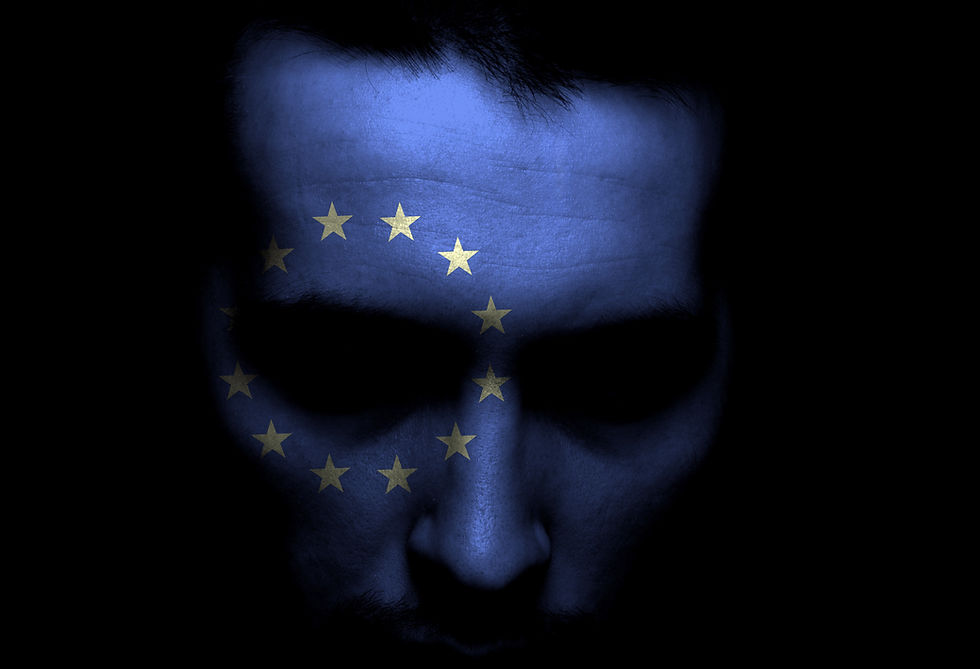Learnings from the C8 Copyright Seminar: AI and Copyright
- Léah Karcenty
- Jul 4, 2019
- 3 min read

Tanya Aplin, Intellectual Property Law Professor at the Dickson Poon School of Law, King’s College London, spoke on the cutting edge of 'artistic' creativity generated by artificial intelligence (AI). Defining AI is difficult, and there is no general consensus but she proposed a functional definition of AI as « a set of techniques enabling machines to perform tasks typically requiring human interventions ». Currently, we are still only dealing with ’weak' AI which can only manage tasks in a single domain, as opposed to strong technologies that can operate across multiple domains. A stronger AI that would be autonomous, self-expending and self-conscious is for now more of a fantasy than reality.

Nonetheless, today, AI technologies are advanced enough that some can 'create', or at least generate, artistic-like works. In the last few years, these type of works proliferated and were brought at the forefront of legal debates, for instance The Next Rembrandt Project. Tanya Aplin put forward an overview how AI would be handled in different legal systems, as well as her own approach.
She first tackled the matter of copyright infringement by making copies of the works used to generate AI content. Indeed, to generate artistic works, an AI requires access to, and the reproduction of massive volumes of existing artistic works. For The Next Rembrandt project, hundreds of the Dutch Master’s paintings were digitally reproduced. An act which requires the permission of the copyright owner if Copyright would still exist (which is not the case with Rembrandt’s paintings).
Secondly, she addressed the question whether the ultimately generated work itself is an infringement of previous works. Interesting questions arise when acknowledging that the generated creation might reproduce ideas, themes or tiny elements of previous works, but which would most likely not be considered as protected intellectual creations.
In conclusion there are questions on copyright infringement on both levels, be it during the process of creation AI works and the AI work itself.
The most fundamental issue Tanya Aplin tackled was the copyright protection of such works. She analysed the legal provisions of five different systems of law, namely the international and European Union copyright laws as well as the legislations of France, the United Kingdom and the United States. Throughout her presentation, it emerged that copyright laws are strongly anthropocentric and creation is - almost always - assumed to be a human activity. Yet, she highlighted peculiar provisions first adopted in the UK, then copied in some other jurisdictions like India, granting copyright protection for computer-generated works and vesting authorship in the person who undertook arrangements for the creation.
These are, for now, the only provisions that would allow AI-generated works to be protected by copyright. Would it be the solution? Tanya Aplin did not seem convinced and shared her doubts on the compatibility of these provisions with European standards of originality, defined as the author’s own intellectual creation.
Is it necessary to protect AI by copyright in the first place? It might be that the protection of the underlying software, as well as technological protection measures or trade secrets are enough to incentivize the development of AI 'creations'.
Moreover, there are philosophic considerations. Taking reflections on AI creations a step further, she challenged the audience to ask themselves about the potential consequences of incentivizing AI-generated works. Should we create a situation where we would not be able to distinguish works from humans and those from machines? What kind of creative labour do we want to support? Should we take the risk of divesting entire artistic sectors of human work to machines, such as background music?
This fascinating talk left the audience with many legal and philosophical questions to reflect on the consequences of protecting AI-generated works.
C8 Associates is a consultancy dedicated to taking creative and digital businesses to the next level. C8 is working with clients on Brexit plans, managing risk, exploiting opportunities and validating Brexit plans.
For more detailed results from this expert opinion survey, please contact Dominic McGonigal directly at dominic.mcgonigal@c8associates.com

Léah Karcenty is a student of IP Law at Queen Mary, University of London





Comments